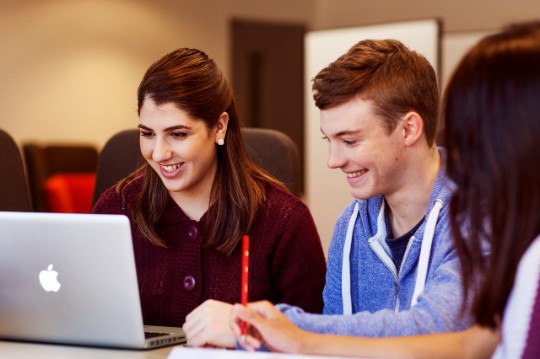You can search for courses, events, people, and anything else.
The rising influence of ‘fake news’ and the importance of media literacy amongst Australians aged eight to sixteen has been explored in a recently published report authored by academics from Western Sydney University and Queensland University of Technology.
Dr Tanya Notley, Institute for Culture and Society (ICS) at Western, says
“Amid a wave of anxiety about misinformation – also referred to as ‘fake news’– we found there was no significant research about young people aged under 18 and news engagement. Our project sought to address this” Dr Notley’s interest in the influence of fake news began following the 2016 US Presidential election of Donald Trump, in which fake news stories were credited with having a significant influence on the decisions of voters.
The latest research has found:
- 53% of young Australians pay attention to the source of their news
- 46% are the opposite and pay very little to no attention.
- Just one third of young Australians say they know how to distinguish real and fake news.
- One in five young people (21%) surveyed in 2020 had found out they had shared a false new story, in comparison to just 7% in 2017, suggesting a growing awareness of the issue.
Thanks to funding from the US-based National Association of Media Literacy Education (NAMLE) and Facebook, Dr Notley is embarking on a new research project. This new initiative will focus on the development of a national media literacy strategy and will include a national survey of adults along with widespread stakeholder consultations.
"Research showed us that misinformation was widely circulated during that election. Since then we’ve seen the rise in influence of misinformation during major events, disasters and elections. As a response we’ve heard a lot of claims being made around young people that have suggested they may be playing a major role in circulating misinformation because of their social media practices. In Australia though, there was no research to back up these claims. We set out to look at the issue of news and young people from different angles – what news are young people consuming, why are they getting news from different sources, what are their processes for checking misinformation, what is their experience of news engagement?”
Sherri Hope Culver, NAMLE says "Dr Notley’s research will be vitally important in helping Australia develop a strong national media literacy strategy. Effective media literacy skill development happens when it is shaped by the type of knowledge and best practice Dr Notley will be assessing."
The importance of media literacy education for Australians of all ages is particularly poignant in the challenging times we are experiencing. Dr Notley and her team are working to ensure that all Australians are equipped with the knowledge and ability to determine if the media they are consuming, which has a significant influence on our opinions and decisions, is accurate.
News and Australian Children in 2020: How young people access, perceive and are affected by news media authored by Western Sydney University’s Dr Tanya Notley, Associate Professor Michael Dezuanni, from Queensland University of Technology’s Digital Media Research Centre, Dr Flora Zhong from Western’s Institute for Culture and Society, and Western’s MARCs Institute PhD candidate Simon Chambers.
Meet the Academic | Dr Tanya Notley
Dr Tanya Notley is a Senior Lecturer in Internet Studies and Digital Media in the School of Humanities and Communication Arts at Western Sydney University, and a member of the Institute for Culture and Society (ICS). Her research and teaching is focused on communication, technology and social change. She has 20 years of experience working with NGOs, government agencies, universities and the United Nations in the areas of social inclusion, social justice and human rights.
Tanya currently leads a project focused on young Australians, news and democracy, funded by the Museum of Australian Democracy and Google Australia, and a project focused on adult media literacy funded by the National Association for Media Literacy Education in the United States.
She is a Chief Investigator on a new national project funded by the Australian Research Council to support the digital inclusion of low income households (led by A/Prof Michael Dezuanni at QUT). Tanya collaborates with a number of media literacy, human rights and social justice organisations to design communication initiatives for social impact, and has worked on practice-based communication research projects in the UK, Germany, Nepal, Sri Lanka, Thailand, India, Indonesia, Singapore and Australia.
Tanya is a co-founder and the Deputy Chair of the Australian Media Literacy Alliance (AMLA). She also holds a visiting fellowship with the London School of Economics where she is examining opportunities for synergy on media literacy education and research in the UK and Australia.
Published August 2020


